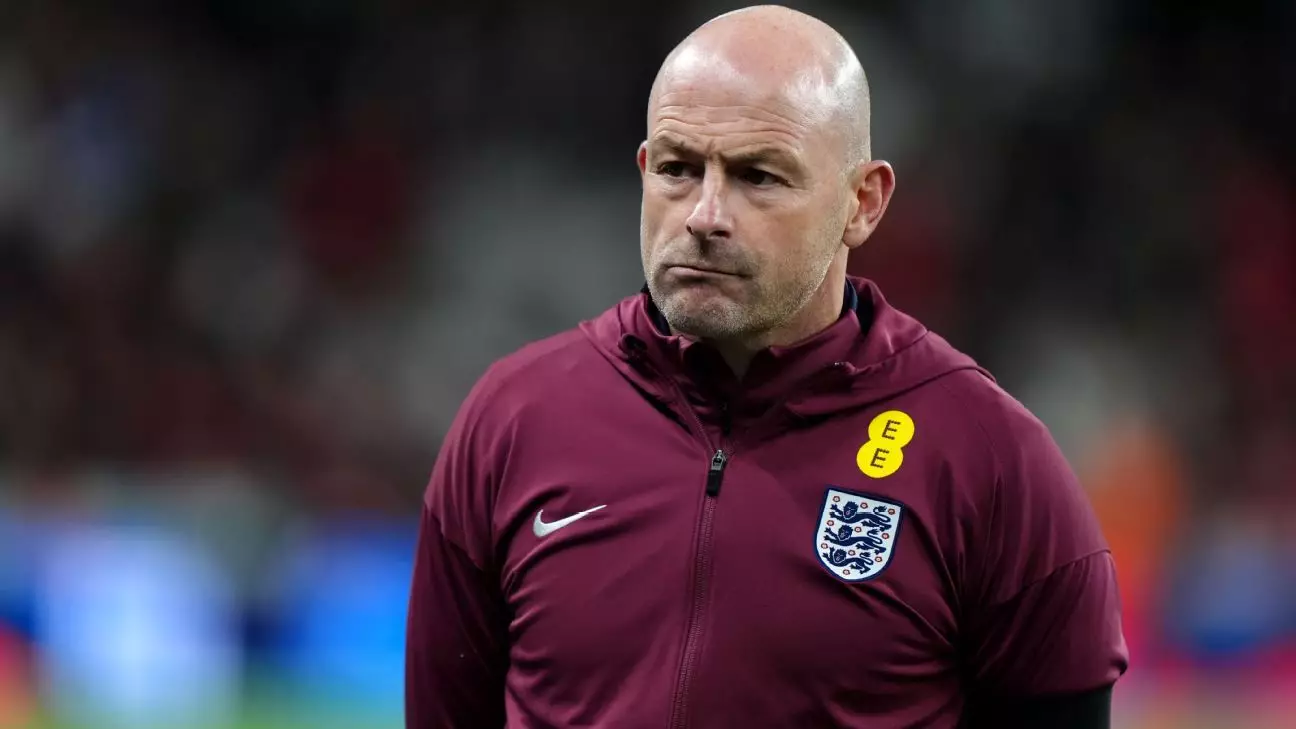When Lee Carsley took up the mantle of interim manager for the England national football team, the expectations were high. Having an impressive lineup of young attacking talents, including Bukayo Saka, Jude Bellingham, Phil Foden, Cole Palmer, and Anthony Gordon, the belief was that creativity and flair would redefine England’s playing style. However, this hope quickly unraveled as the team suffered a shocking 2-1 defeat to Greece in the UEFA Nations League. This match didn’t just leave fans astounded; it raised critical questions regarding both strategy and the future leadership of the team.
The Fallacy of Overconfidence
Carsley’s bold tactical choices reflect a desire to push boundaries, but the game against Greece showcased the stark reality of overconfidence. With star striker Harry Kane sidelined, Carsley’s decision to deploy a plethora of attacking players left the team imbalance. The experiment to position Bellingham, Foden, and Palmer in roles typically reserved for a sole playmaker resulted in a fluidity that transformed into chaos. Instead of harnessing their attacking potential, the formation led to confusion on the field, allowing Greece to exploit England’s weaknesses consistently. This miscalculation was emphasized by a lack of coherent strategies, ultimately proving that the sum of talented individuals does not equate to a well-functioning unit.
Defensive Absences and Tactical Mishaps
Whether by accident or design, the tactical setup left the English defense vulnerable. With Declan Rice often left to fend for himself in the midfield, it became painfully evident that the defensive structure lacked necessary support. Bellingham, Foden, and Palmer—each more focused on offensive endeavors—rarely tracked back, effectively leaving the backline exposed to a Greece side hungry for opportunity. The first warning came within the opening minutes when a quick counter-attack revealed England’s fragile defensive framework. This trend continued throughout the match, culminating in a stoppage-time goal from Vangelis Pavlidis that sealed England’s fate.
In sports, and particularly in football, experimentation is a double-edged sword. Carsley’s intention to blend his players’ skills resulted in a misaligned vision on the pitch. He openly accepted the blame for the formation and tactics employed, yet his acknowledgment of failure hardly alleviates the consequences of the defeat. While it is admirable to aim for creativity and boldness, the inherent unpredictability of such an approach during a competitive fixture can ultimately lead to embarrassment, as evidenced by the crass performance against Greece.
As England prepares for upcoming fixtures, including an essential match against Finland, the loss to Greece serves as a learning opportunity. For Carsley, this match is undoubtedly a setback in his aspirations for a permanent managerial role. The debate around his future will linger as the Football Association evaluates the consequences of this defeat within the broader context of England’s trajectory. The important question remains: can this talented cadre of young players coexist harmoniously under a cohesive strategic directive?
The prospect of regrouping for the England team hinges not merely on skill but rather on a refined understanding of footballing identity. The narrative that enfolded during the match against Greece serves as a reminder that talent must be cultivated within a balanced system. As the dust settles from this disappointment, both the players and the management face the challenge of re-establishing a sense of purpose. If Carsley and the selected squad can unify their efforts and recalibrate their approach, there might still be time to restore faith among supporters who look to a brighter future. The painful lesson learned in this encounter is a clarion call to maintain both humility and diligence as England seeks to build a stronger unit capable of overcoming adversities.


Leave a Reply